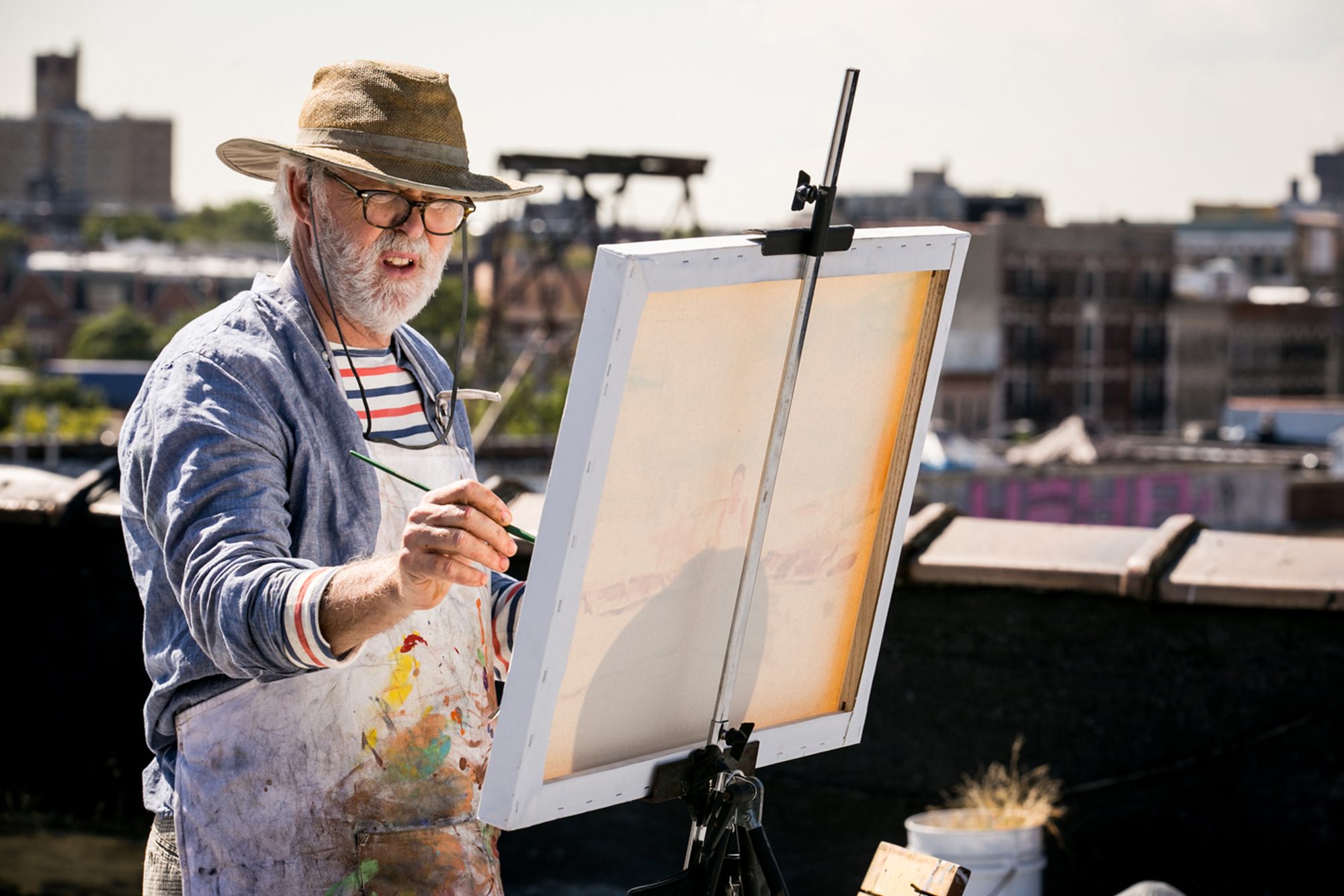Love Is Strange could have been another story about love triumphing in the most magical place in the world: New York City. By repackaging a familiar story with a modern twist of same sex marriage and strong performances, Love Is Strange avoids many pitfalls of falling into a generic arthouse film. However, it does make you think that by simply living in New York City, magical things just happen to you, taking away some of the movie’s power in the real.
Ben (John Lithgow) and George (Alfred Molina) take the big step now that same sex marriage is legal in New York. Their marriage is a joyous affair, celebrating with friends and family, among them Ben’s nephew Elliot’s (Darren E. Burrows) family: his wife Kate (Marisa Tomei), and son Joey (Charlie Tahan), Alfred’s gay son Ted (Cheyenne Jackson), and friend of the family Mindy (Christina Kirk). The wedded bliss evaporates almost immediately; George gets excommunicated from his Church position, forcing him and Ben to move out of their apartment they cannot afford. As such, Ben moves in with Elliot and the family and George moves in with Ted, causing tension from the claustrophobic lifestyle changes each person undergoes.
Love Is Strange makes a point that the living situation in question is clearly less than a year. However, non-time specific time jumps extend the time period to make it seem the problem may be for a longer time. The jumps nicely move the story to a more interesting point, but they disingenuously make the problem seem bigger than it actually is. For a movie based in the real world, yes, it is possible that New Yorkers can be THAT impatient that the world doesn’t turn in their favor; however, it drops the characters likability significantly. In addition, we see character setups abandoned in the service of the time jump. We should feel bad at George’s meticulous efforts to get back on his feet, except he spent approximately zero time really comprehending what could happen with his Catholic church position if he got married. Character evolution is welcome if it is earned, but Love Is Strange doesn’t spend enough time developing the characters in service of its time jumps.
Too bad to, because the actors all brought their A games. I don’t recall John Lithgow or Alfred Molina acting better. Both dial down their quirks while retaining their charm (Molina’s elegance, Lithgow’s doofus). The scenes between them pop with electricity and catharsis: not once do we question their care for each other. Love Is Strange separates the two powerhouses for most of the film, making the scenes together extremely powerful, but overall eliminating how effective Love Is Strange can be. As for the families, Marisa Tomei and Charlie Tahan give strong performances in support. Tomei’s novelist, in an honest way, has trouble creatively finishing her book with Uncle Ben around (still have to explain to me why she can’t work at a coffee shop). Tahan, the poor teen, has to share his room, his bed, and his best friend with his Uncle, thus making him grow more frustrated as the movie goes on. Tahan’s arc is the most satisfying, but Tomei’s is the most ubiquitous; I’m certain everyone has acted toward a family member in a way that she does.
Love Is Strange means so well, like its elderly couple. Also like the elderly couple, it feels tired and lived-in despite trying to be fresh. Writer/Director Ira Sachs can direct realism in actors well, but needs a fresher-upper for himself to follow. Since you like non-stated time jumps, I suggest starting with Richard Linklater.

